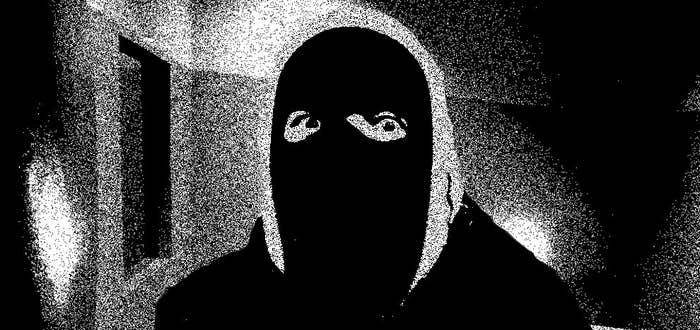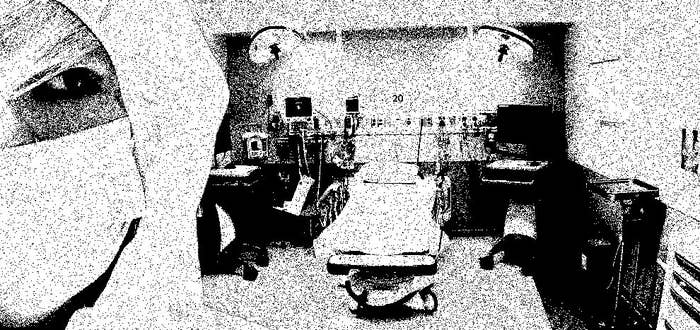
DONETSK, Ukraine — As he sobered up through the long, strange night, the captive man grew more and more afraid.
He recalled the previous hours through a blur of alcohol and pain: drunkenly insulting a group of pro-Russia men, being clubbed and dragged to a makeshift base; and then the raised stakes when they found out who he was. He remembered an injection — maybe a truth serum, he thought, or something for the pain — and a videotaped confession, where he admitted to recruiting men to fight the separatists overrunning eastern Ukraine. Now he was in their nerve center, an 11-story government building in the regional capital of Donetsk ringed by razor wire and barricades. He was handcuffed to a chair in a busy hallway beneath fluorescent lights. Some of the armed men passing by bent down and threatened to kill him.
The man, a pro-Kiev activist, had found himself in the heart of a shadow war fueled by hostage taking and a rush to militarize. New captives are brought to the Donetsk building nightly, separatists say — adding that the pro-Kiev side targets them right back. While some of the captors interrogated the man, pushing for information about weapons caches, others broke into his home and stole his hard drive. Then they set him free.
After two nights in the building, walking out into the sunlight on Saturday felt wonderful, remembered the man, who was afraid to use his name. He looked around to see if he was being followed. Then he headed to a nearby McDonald's, where he'd arranged to meet the powerful friend who'd been trying to secure his release: Nikolai Yacubovich, the head of a local civil defense force and a key rival to the pro-Russia militants in the city.
As he watched the burly Yacubovich approach, the man realized that he'd been used as bait — three assailants suddenly appeared, attacking Yacubovich in the street. The just-freed man turned to flee, but someone grabbed him. He heard gunshots as he was pushed into a minivan.
Bleeding from a bullet wound in his leg, Yacubovich, a former police officer, was surprised by the skill of his attackers. On this murky front of the conflict, he realized, the enemy was effective and organized. He was brought into the occupied government building, where a makeshift operating room waited on the second floor. A surgeon in blue scrubs provided a local anesthesia and skillfully cleaned and bandaged his leg.
Then Yacubovich was brought to the floor that had taken on an air of notoriety and intrigue even among the activists and militants who worked elsewhere in the building: No. 6. It was said to be a hub for special operations, from which high-priority kidnappings, interrogations and other missions were carried out. In this way it was also a window into the dark forces the conflict had already unleashed — even as Russian President Vladimir Putin signals an easing of his aggressive stance on eastern Ukraine and the region braces for the uncertain aftermath of a contested referendum held on Sunday.
Inside a drab conference room, Yacubovich was forced to do a video interview in which he was "strongly urged" by the Russian journalist filming it, he said later, to call on the government to halt a military campaign against the separatists that has brought new casualties almost by the day. To open the video, a man wearing a black ski mask and bulletproof vest addressed the camera: "Now our faces are covered, but soon they will be revealed."
The masked man described himself as a leader of a little-known group that called itself the Russian Orthodox Army — and whose appearance has raised concerns that the uprising might be spiraling beyond anyone's control. In a recent interview just six floors above the conference room, Alexander Kishinets, the "war commissioner" for the shadow government operating out of the building, called it another sign that "some people who are getting power and arms are becoming like Napoleon or Stalin, and just trying to get more power."
"There is not good coordination," Kishinets added.
After the video was recorded, Yacubovich was interrogated by his captors. They carried themselves like professionals, he thought — and he took them for local men with strong military backgrounds. "The guys who caught me were well-trained," he said later. "And the guys who held me were even better trained." Yet Yacubovich also saw evidence of internal discord among the militants: Competing groups argued heatedly, and his captors appeared to be protecting him from others who wanted to do him more harm.
Yacubovich and his friend were eventually moved to another building for their own protection. They were released last Monday alongside three other pro-Ukraine hostages after negotiations between the captors and Ukrainian authorities; Yacubovich said he wasn't sure what kind of deal had been reached.
The shadow war inside the occupied government building, meanwhile, kept churning. That same afternoon, a Western journalist climbing past the fifth floor in the stairwell saw three blindfolded men dragged at gunpoint through its guarded entrance by militants who shouted angrily that there was nothing to see, and then slammed the door.
On Wednesday afternoon, sitting in the same conference room where days earlier Yacubovich had recorded his hostage video, a militant commander who gave the nickname Veren said the pro-Russia forces on the fifth floor had been taking captives "more and more often" of late — another sign of the escalating conflict. He wore a black ski mask atop his head like a skullcap and had tattoos stretching past the sleeves of his T-shirt and up his neck.
Veren said he led a group of about 40 men who focused on "special operations" and "rapid reaction." He added that the fifth floor had acquired its mysterious reputation — "there's a lot of gossip" — because of the unusual skill of the men who operated there. While he had no military experience himself, he said, most of his men did. "Captives come to other floors as well, but the people on the fifth floor are more military and more professional," he said.
Veren said his group had taken part in the capture of Yacubovich and his friend, claiming that the two had been paying criminals to fight the pro-Russians. "I am sure they are fascists," he said. He refused to call any of his captives "prisoners," saying they tended to be released within a few days, sometimes a few hours. He often tried to negotiate prisoner exchanges, he added — he'd also been offered $500,000 for Yacubovich, he said — but his most important task was getting information.
Not far beneath the surface, eastern Ukraine has an ugly history of internecine violence — and many of the region's business and political figures are said to have visited extreme cruelty on their rivals as they jockeyed for power. Now those demons seemed to have been awakened anew. Veren spoke of myriad and murky threats from his rivals, mentioning one example of two pro-Russians who he said had recently surfaced in a river with their stomachs opened up.
In this context, information was an increasingly valuable commodity: Veren also claimed that dangerous irregular forces were fighting in concert with the Ukrainian authorities. "We cannot distinguish who is who," he said.
Both Yacubovich and his friend said they were treated well once in custody, and according to Veren, most captives sustained any injuries during their capture. But he also appeared to suggest that harsh measures were sometimes employed to get people talking.
Asked if his men ever tortured their captives, he replied: "What is your definition of torture?" Pressed further, he said in English: "No comment."
"History has to be written, even with all of its black pages," he added.

The operations afoot in the occupied building suggested that its new owners were braced for even darker times ahead — and the makeshift hospital in which Yacubovich was treated provided one striking example of this mind-set.
A man who gave his name as Yuriy Yurievich, 40, said he had quit his job as a surgeon at a local hospital to direct the medical efforts inside the building. Now he oversaw a staff of about 50 doctors, nurses, and paramedics, he said. Some worked there between shifts at their regular jobs, while others, like him, had signed on full time. Sitting in his commandeered office, as a nurse in pink scrubs typed away on a computer, Yuriy said he'd been working to get the field hospital on a war footing. "The risk of large-scale battle here is high," he said. He cited Libya, Syria, and the Balkans as examples of the ugly turns the situation might take.
Yuriy, who described himself as a committed "anti-fascist," said that the emergency room that waited beneath blue sanitary sheets across the hall could handle even serious trauma. The staff had thankfully been treating mainly stress and hypertension to date, along with some bullet and knife wounds. Yuriy added that he saw no ethical issues in treating captives like Yacubovich who were occasionally brought in. "I don't understand why I should have an internal conflict about this," he said. "Our soldiers are carrying out their battle tasks and we are helping them to do that."
Back on the fifth floor, Veren, the militant commander, said that his men were "hoping for the best but prepared for the worst."
A former proprietor of a chain of fast food restaurants, he said he was one of the three leaders of the Russian Orthodox Army that had appeared in the Yacubovich video. It had been formed in a recent merger of smaller groups, he said, and boasted about 250 fighters spread across Donetsk as well as the contested cities of Slovyansk and Luhansk. He said it would expand as needed if the conflict continued to spiral — and mentioned the port city of Odessa, riven increasingly by violence, as one possible locale.
Veren derided his pro-Kiev rivals several times for what he described as a lack of ideology, claiming that most were fighting out of ignorance, or for money. But he gave few details about his own ideology — that would require a much longer conversation, he said — saying simply that he supported "friendship between nations."
A Russian citizen, he was married to a woman from Donetsk, he said, and had been living in the city since 2010. He said he'd first become involved in the pro-Russia movement by coming to demonstrations after the revolution in Kiev earlier this year, finding sympathy with the cause. He had "absolutely not" had any contact with the Russian authorities, he said, and had no problem with publicizing his origins. "If you write that I am from Russia, it will be a signal that Ukraine and Russia are brother nations," he said.
Veren did not share the desire of many of his comrades for the region to join Russia, he added.
Instead, he seemed focused mainly on growing his power, and on dealing with the raging conflict at hand — a small crowd of militants waited impatiently outside his office as he spoke. At one point in the afternoon, he called a group of 30 men to attention before the fifth floor's bank of elevators, passed them a new batch of ski masks, and watched as they tried them on. "Don't take them off," he said.
